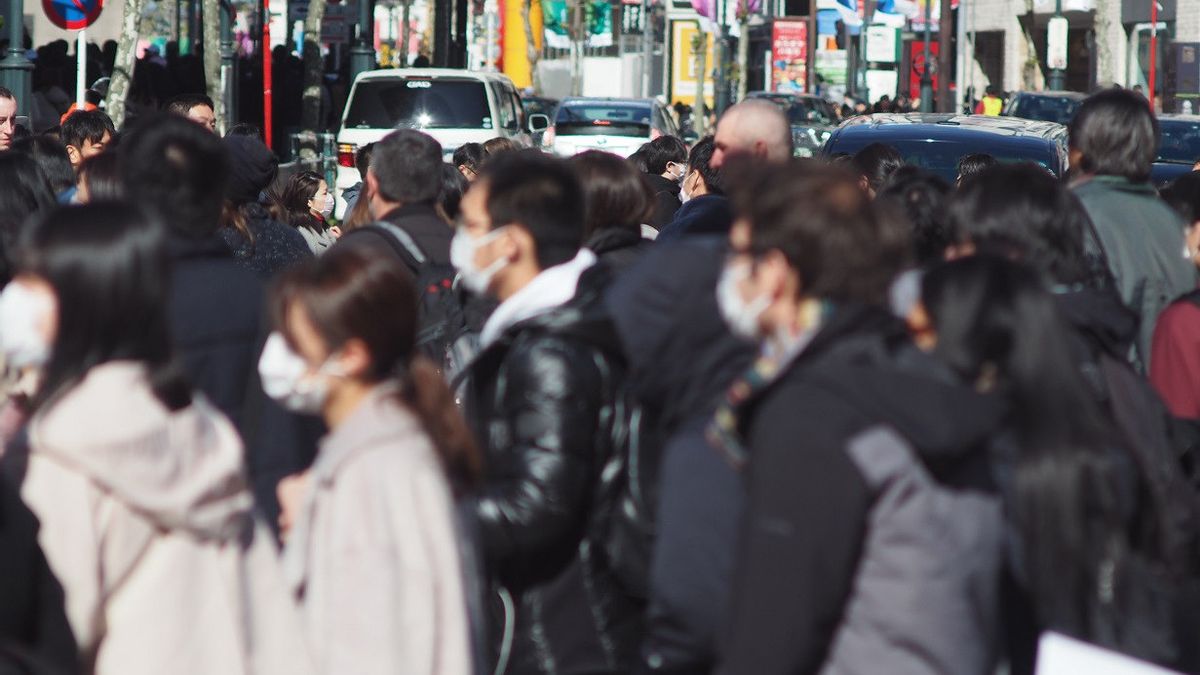JAKARTA - The Japanese government considers it necessary to consider the wishes of the Tokyo Prefectural Government and Osaka Prefecture regarding the emergency status of COVID-19, along with the spike in infection cases that have occurred.
The spike in COVID-19 cases is also overshadowing plans for the Tokyo Olympics which will be held in July, after being postponed due to the COVID-19 pandemic than it should have been last year.
Entering April, Osaka, Tokyo, and eight other prefectures are in a near emergency status to control the spread of COVID-19. Restaurants and bars are closing early, while jobs are being called for remotely.
However, these efforts have not produced results so far. Last Sunday, Osaka reported a record 1,220 cases of new COVID-19 infection or two weeks after the restrictions. The cause, allegedly related to the finding of a case of mutation in the E48K coronavirus which is malignant in transmission.
"The results of this action should have emerged by now", Osaka Governor Hirofumi Yoshimura told reporters in comments published online.
"Medical services are also in a dire state, and we have decided that we need an emergency. We need stronger measures such as those that will stop the movement of people", he said.
Yoshimura said the third most populous prefecture in Japan would submit a formal request for emergency status to the Japanese government tomorrow.
Quarter three money, Tokyo is also considering an emergency request. This was disclosed by Tokyo Governor Yuriko Koike. He told reporters late Sunday that the current condition was a step back in the midst of efforts to control the pandemic ahead of the Tokyo Olympics.
"Taking precautions is very important at this time", said Koike.
To note, Tokyo reported 543 new cases of COVID-19 infection on Sunday, the 18th day in a row increasing in seven days.
In a TV Asahi poll published Monday, more than half of respondents said they believed "semi-emergency" restrictions were ineffective.
Meanwhile, asked about possible requests from Osaka and Tokyo, Chief Cabinet Secretary Katsunobu Kato, the main government spokesman, said such calls needed to be considered "as soon as possible".
The English, Chinese, Japanese, Arabic, and French versions are automatically generated by the AI. So there may still be inaccuracies in translating, please always see Indonesian as our main language. (system supported by DigitalSiber.id)













